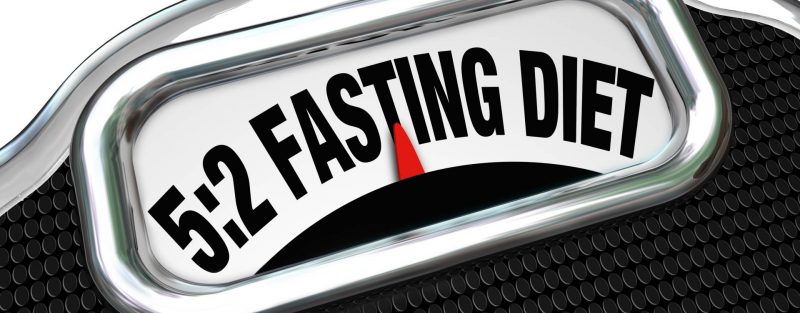Uncategorized
5:2 Diet
Is Fasting Good for You?
If you haven’t already come across the 5:2 diet (it’s been around for a good for years) it’s fairly simple, you eat a normal calorie intake 5 days a week and then 500 calories (for a woman) 2 days a week.
Pro’s of the 5:2 Diet
Pretty simple to follow! You may want to work out your calorie intake over a week or so using an online counter, but once you know roughly how much you are eating you are good to go.
On busy days when you have to rush out the door, work is manic and you may not get much time to stop and eat, you may find the 25% calorie intake simple to follow – not much to think about meal planning wise!
It can suit most lifestyles fairly well as you don’t have to change too much. For example, if you are going out to eat you can use a “5” day and then follow it with a “2” day.
Many people seem to lose weight using the 5:2 diet or a fasting method – probably because most people are eating LESS food this way!

Con’s of the 5:2 Diet
It’s easy to get caught up with eating the “right” amount of calories and loose focus on the quality of your food. This can result in a lack of nutritious food being consumed as the focus is on calories not food quality.
On “2” days you may experience low energy levels, poor concentration and experiencing headaches and dizziness. Maintaining your hydration is crucial. These feelings may pass with time as your body adapts though.
If you are diabetic you need to discuss starting the 5:2 diet with your GP as it can affect blood sugar management. Likewise, if you are pregnant or taking ANY form of medication discuss your needs with your GP first.

Conclusion
There are several variations of the 5:2, but fasting is really quite simple – have sustained periods of time without eating…and the body is more than capable of doing this!
It really does come down to the individual and what works. For example, with many of my clients I start with an overnight fast: 7am – 7pm which seems sustainable and beneficial for most people.
Fasting seems to be positive in terms of blood sugar levels, triglyceride levels (these are fat molecule levels in your bloodstream), digestive health and cognitive function.
I think the 5:2 diet is a fairly sustainable method of eating and usually results in less food being eaten so often weight loss occurs.
I usually recommend following something along the lines of the Mediterranean diet in general and you can easily fit this in with fasting or the 5:2 diet.
Are you ready to give it a go?

